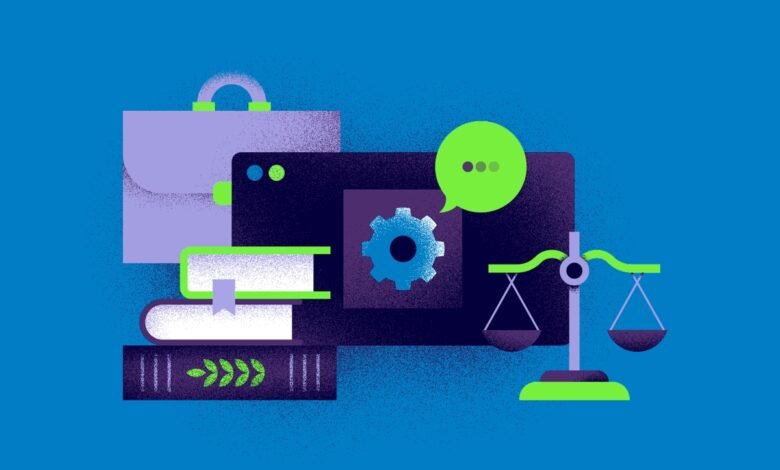AI And The Legal Industry: How Can Law Firms Use it?

Artificial Intelligence, commonly known as AI, refers to the simulation of human intelligence in machines that are programmed to think like humans and mimic their actions. In the legal industry, AI encompasses a range of applications, from document review and legal research to predictive analysis and litigation analytics. The integration of AI into the legal sector is not a novel concept; however, its adoption has been relatively slow compared to other industries. Nonetheless, as technology continues to evolve, law firms are increasingly recognizing the potential of AI to revolutionize various aspects of their operations.
Document Review and Legal Research
One of the most time-consuming tasks for legal professionals is document review and legal research. Law firms often have to sift through vast amounts of data to find relevant information for a case. AI-powered tools can streamline this process by automatically scanning and analyzing documents, identifying relevant information, and categorizing it accordingly. For example, e-discovery tools use natural language processing (NLP) to understand the context of documents and identify relevant information. This not only saves time but also reduces the risk of human error.
Predictive Analysis
Predictive analysis involves using data, statistical algorithms, and machine learning techniques to identify the likelihood of future outcomes based on historical data. In the legal industry, predictive analysis can be used to forecast legal outcomes, such as the likelihood of winning a case or the expected settlement amount. AI-powered tools analyze past case data, court decisions, and other relevant information to make these predictions. This can be incredibly valuable for law firms as it can help them make more informed decisions and develop better strategies for their cases.
Legal Drafting and Contract Analysis
Legal drafting and contract analysis are other areas where AI can make a significant impact. AI-powered tools can analyze contracts and other legal documents to identify potential risks, inconsistencies, and areas for improvement. For example, contract analysis tools can automatically identify and extract key terms, clauses, and obligations from contracts. This not only saves time but also ensures that nothing important is overlooked.
Chatbots and Virtual Legal Assistants
Chatbots and virtual legal assistants are AI-powered tools that can interact with clients, answer their questions, and provide legal information. These tools use natural language processing (NLP) to understand the context of the questions asked and provide accurate and relevant responses. Virtual legal assistants can also help with scheduling appointments, sending reminders, and other administrative tasks. This not only improves the client experience but also frees up time for legal professionals to focus on more complex tasks.
Litigation Analytics
Litigation analytics involves analyzing data related to legal proceedings to gain insights that can help law firms make better decisions and develop more effective strategies. AI-powered tools can analyze data from court records, legal documents, and other sources to identify trends, patterns, and correlations. For example, litigation analytics tools can help law firms identify judges’ tendencies, opposing counsel’s strategies, and other factors that may impact the outcome of a case.
Ethical Considerations
While AI has the potential to revolutionize the legal industry, it also raises several ethical considerations. For example, there are concerns about the potential bias in AI algorithms, the accuracy of AI-powered predictions, and the impact of AI on legal professionals’ jobs. Law firms must carefully consider these ethical implications and ensure that they are using AI responsibly and ethically.
Overcoming Challenges
Implementing AI in the legal industry is not without its challenges. Some of the common challenges faced by law firms include the high cost of AI tools, the lack of technical expertise, and concerns about data privacy and security. However, with the right approach and strategic planning, law firms can overcome these challenges and successfully integrate AI into their operations.
Case Studies
There are several real-world examples of law firms successfully using AI to improve their operations and provide better services to their clients. For example, a law firm in the UK used AI-powered tools to streamline its document review process, reducing the time required by 50%. Another law firm in the US used AI-powered predictive analysis tools to forecast legal outcomes, helping them make more informed decisions and develop better strategies for their cases.
Future Trends
As technology continues to evolve, the integration of AI into the legal industry is expected to become more widespread. Some of the future trends in this area include the increased use of AI-powered chatbots and virtual legal assistants, the development of more advanced litigation analytics tools, and the integration of AI into legal education and training.
FAQs
How can AI improve the efficiency of law firms?
AI can improve the efficiency of law firms by automating repetitive tasks, such as document review and legal research, predicting legal outcomes, analyzing contracts, and interacting with clients. This not only saves time but also reduces the risk of human error and helps law firms make more informed decisions.
Is it ethical to use AI in the legal industry?
While AI has the potential to revolutionize the legal industry, it also raises several ethical considerations, such as potential bias in AI algorithms, the accuracy of AI-powered predictions, and the impact of AI on legal professionals’ jobs. Law firms must carefully consider these ethical implications and ensure that they are using AI responsibly and ethically.
What are the challenges faced by law firms in implementing AI?
Some of the common challenges faced by law firms in implementing AI include the high cost of AI tools, the lack of technical expertise, and concerns about data privacy and security. However, with the right approach and strategic planning, law firms can overcome these challenges and successfully integrate AI into their operations.
Conclusion
AI and the legal industry are increasingly intertwining, creating a myriad of opportunities for law firms to streamline operations, reduce costs, and ultimately improve the quality of legal services provided. While there are challenges and ethical considerations to be addressed, with the right approach and strategic planning, law firms can leverage AI to their advantage and stay ahead in the competitive legal landscape.












2 Comments